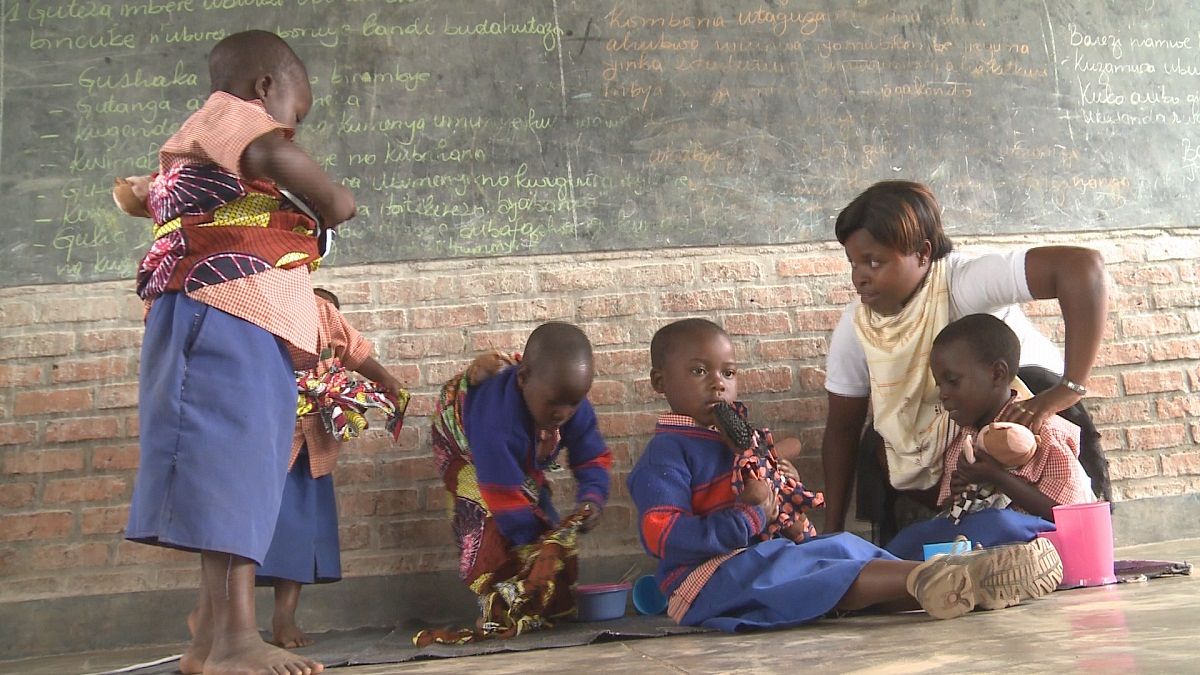In this edition of Learning World, we visited both northern Rwanda and southern Brazil to examine a question that faces families the world over –
In this edition of Learning World, we visited both northern Rwanda and southern Brazil to examine a question that faces families the world over – when money is tight and resources are scarce, what routes are available to ensure that your children have access to quality, yet affordable, education?
Rwanda: partnerships are key
Success story
Rwanda’s government has significantly stepped up education spending over the past decade – and the country has the highest primary school enrolment rates in Africa.
Furthermore, Rwanda has succeeded in providing almost universal access to primary education, according to UNICEF.
Jean De Dieux Mwumvirangoma is a farmer and father of five, living in the Burera district in the north of the country.
His son Etienne studies at a school nearby that is funded by the government. Around 1,250 students are enrolled here.
Jean said that he sends his children to school “to prepare them to manage their lives in the future.”
“I want them in school to study for a better Rwanda.”
Constructive support
The Global Partnership for Education supports education initiatives in 61 developing countries around the world.
Rwanda joined the GPE in 2006 and has received four grants since then. Around 175 million dollars (155 million euros) has been disbursed to Rwanda in total, according to the GPE.
Subrata Dhar, who is the country lead for the GPE in Rwanda, said: “The Rwandan government is extremely committed to the development of the education system. They have developed an education sector strategic plan, which is comprehensive and results-based.”
Last year, the GPE adopted a new funding model. Applicant countries prepare an education plan. If it is accepted, 70 percent of the grant is paid out. The remaining 30 percent is conditional on improvements being made according to the plan.
Rwanda was one of the first countries to apply for one of these grants, and it secured its latest tranche of GPE funding in May 2015.
Rwanda’s Education Minister told Learning World: “The first element, of course, is to measure the learning outcomes. The second aspect is to focus on data, having the quality-desegregated data so that they can inform us.
“The new funding model is also focusing on pre-primary education because we believe that early preparation of kids increases the level of numeracy and literacy.”
“If I get a diploma I could become a teacher, or a mayor, even a journalist, who knows!” https://t.co/oyXPZN1vZ8pic.twitter.com/iAb0t2WDaM
— Global Partnership (@GPforEducation) March 7, 2016
Teacher training – Rwanda’s next education challenge
That focus on early education includes new initiatives to train more teachers for those crucial first years of schooling.
At the Kirambo training centre in Burera, future pre-school teachers learn the profession.
Trainee Claudine Nishimwe said the teachers at Kirambo show “how we can best prepare the way of teaching the children in pre-school. Other courses that we study in early childhood education include psychology, mathematics, social studies, French, English and so on.”
Brazil: private student loans soar as government budget cuts bite
From dawn till dusk
As day dawned in Sao Paolo, it was the start of another long day for 26-year-old Camila.
She has been working full-time as a legal intern all day, then studying at evening classes from 7 p.m. until 11 p.m.
But Camilla would not change her “exhausting routine” because it affords her the opportunity to fulfil her dream of becoming a lawyer.
Her parents have modest incomes, but she managed to secure a private student loan in order to do her law course.
“This loan is a very good thing for her – because she was struggling to get public financial help,” explained Camila’s mother, Celia.
“The interest (on the private loan) is as low as on the public ones.”
Camila herself admitted that she “couldn’t take these courses without the loan, because of the price,” adding that the loan “makes the (re)payment much easier, and enables me to do it.”
Private loan boom
Government cuts to education funding in Brazil have been pushing more and more students, like Camila, to take on loans from private firms.
Ideal Invest has provided loans to around 50,000 students – more than half of them women – since 2006.
The company’s CEO Carlos Furlan said that private student loans are absolutely crucial in order to fill the gaps in public funding.
“The two systems of loans coexist. Because, particularly in Brazil, many students need financial support to go to university. Without both the public and private systems, it wouldn’t be possible for every student who lacks resources to go to university,” Furlan explained.
Camilla, who has an Ideal Invest loan called Prevailer, said the private system is much less bureaucratic than the public one.
Her teacher – law professor, Terezinha Fernandes de Oliveira – said she is also in favour of private student loans because they keep students motivated.
“Because for them (students with private loans), they need to – and they have the will to – be responsible and pay back the money for their own courses,” de Oliveira explained.


